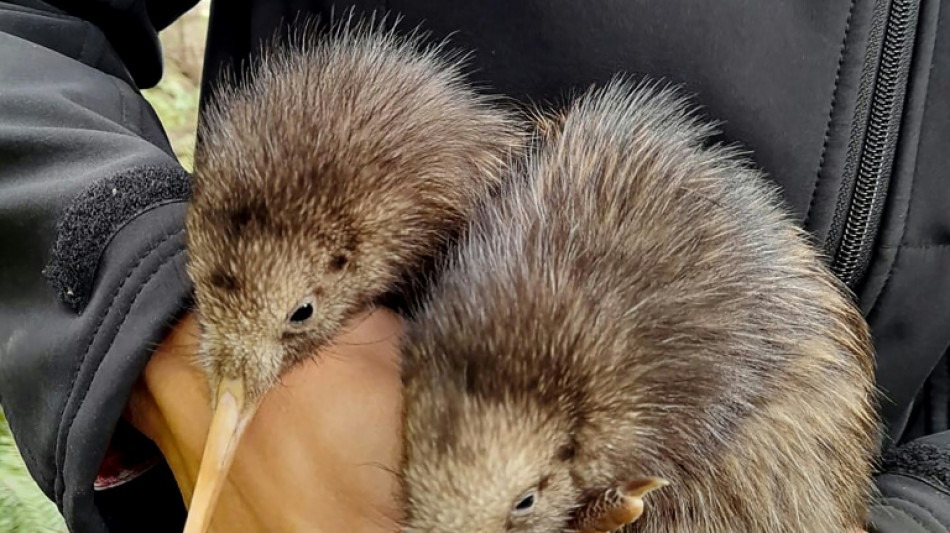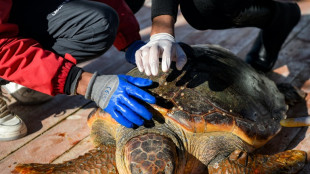

Wellington welcomes first wild-born kiwi chicks in a century
Conservationists in New Zealand celebrated on Tuesday after discovering that kiwi chicks had been born in the wilds around Wellington for the first time in more than a century.
The fluffy, flightless bird with a long distinctive beak is a beloved national symbol, but few New Zealanders have ever seen one in the wild.
Kiwi are among the most vulnerable birds in New Zealand.
The Department of Conservation estimates there are only about 26,000 brown kiwis left.
Last year, the Capital Kiwi Project released a few dozen adult birds into the wild near Wellington, hoping to reestablish a population in the area.
They have now discovered four chicks -- who are believed to be the first born in the hills of Wellington in more than 150 years.
"This is very special for the team which has been working hard for the last few years," project founder Paul Ward told AFP.
The chicks are a "massive milestone for our goal of building a wild population of kiwi on Wellington's back doorstep", he added.
A project volunteer had a shock when he put his hand in a nest under a tree last week and pulled out a freshly-hatched kiwi chick, Ward said.
"He was very pleasantly surprised when another shot past him. We found two last week and then another two today."
The goal is for the fledgling chicks to reach a fighting weight of 800 grammes, Ward said, to be large enough to ward off stoats, their natural predators.
"We'll go out and give them some extra worms for Christmas to put on weight," Ward joked.
An adult kiwi weighs about three kilogrammes.
In order for kiwi to be able to return to the rugged hills south-west of Wellington, the project first had to rein in their predators.
Local dog owners were invited to sessions to teach their pets to steer clear of kiwi while out for walks.
The project also declared war on stoats by laying a huge network of 4,600 traps over an area equivalent to nearly 43,000 football pitches.
Ward hopes the fluffy chicks are just the beginning.
"We are only monitoring a quarter of the 63 (adult) birds which have been released, so it is likely there will be more (chicks) out in the wild," he added.
"We have high hopes these will be the first of many."
E.Mancini--IM




